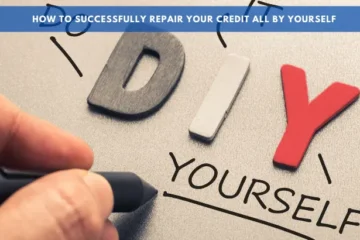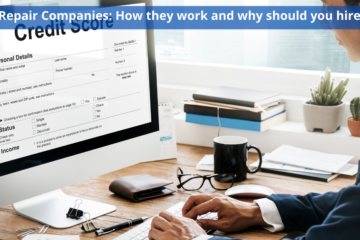Road to financial recovery:
Ever wonder where to start after drowning in debt because of unexpected financial difficulties? Like someone from the family unexpectedly needing medical treatment or losing your job because of the virus that spread worldwide. Having multiple debts can be draining for an individual, especially when you don’t know how to start your financial recovery. Credit repair companies can help you solve problems regarding your credits. Make sure to read Canada credit fix reviews to help you choose the best company for you.
Many organizations can also help you during your financial recovery and give you counseling. One is the Consumer Credit Counseling Services (CCCS) agency. These local, non-profit organizations affiliated with the National Foundation for Consumer Credit (NFCC) provide education and counseling to families and individuals for their financial recovery.
But first, what is NFCC?
The NFCC is the largest and longest-serving non-profit financial counseling organization in the United States, founded in 1951. They have the dedication to helping families and individuals struggling with their finances and are willing to recover their good credit.
If an individual wants help, CCC counselors with professional backgrounds in money management and counseling can provide support. For higher standards, NFCC developed a program in which the counselors will develop a budget plan for you to maintain your basic daily expenses and outline options for addressing your whole financial situation. If creditors are pressing you, the counselor will negotiate with your credits and repay your debt using financial management plan. Under this plan, creditors often agree to reduce payment, lower your interest, drop charges, waive late fees and drop over-the-limit fees.
According to NFCC:
35% of those counseled can help themselves after a budget counseling plan.
30% require a debt repayment program.
7% referred to legal assistance.
28% referred to other resources (e.g., Programs for treating compulsive behavior)
And 65%-70% completed the debt repayment plan.
After the debt repayment plan, you must deposit monthly with CCCS to cover the newly negotiated repayment amount. The organization will then distribute the payment to your creditors to repay your debt. CCCS may charge you at a low cost or nothing at all.
Have you ever considered filing for bankruptcy just because you are overwhelmed with your overloading notices on your table? While bankruptcy may sound a little desperate and attractive because you lose all your hopes in repaying your credit, it is important to know one or two about bankruptcy.
What is bankruptcy?
Bankruptcy is a legal procedure that gives an individual a fresh start. However, it is more serious than how it sounds. It will always depend on the situation, even when you file for bankruptcy. They either erase your debt or make a plan for you to pay them back. It all depends on the reason why you want to apply for bankruptcy. Do you lose your job, have a sudden family member’s death, have medical bills, or maybe a divorce? It will all depend on the main reason.
There are different types of Bankruptcies.
But let us focus on the two types that are commonly dealt with by an individual. Note that “Chapter” refers to the specific section of the U.S. Bankruptcy Code.
1. Chapter 7 or the Straight Bankruptcy.
This is the most common type of bankruptcy applied by an individual. The court will oversee your assets or anything of value to pay your creditors. They may erase unsecured debts, which has no collateral, like credit cards and medical bills. However, debts like student loans or taxes are not forgivable.
The court will do a “Means Test,” which means they compare your income to the state average and looks at your finances to see if you have the disposable income or “means” to pay your outstanding debt. If the court decides you are unfit to pay for your debts because of your low income, you can apply for Chapter 7 bankruptcy.
Chapter 7 Bankruptcy doesn’t stop foreclosing; they can only postpone. Depending on your state, the court won’t force you to sell necessities such as a house or retirement account. It is their way for you to reaffirm your debt which means you can recommit the loan agreement and start paying the debt again. Most Chapter 7 Bankrupcies are the no-asset case, which means there’s no property with enough value to sell.
This case also stays on your credit report for ten years, which will greatly impact your credit score. You cannot apply for bankruptcy for the next eight years.
2. Chapter 13 or Reorganization.
Unlike Chapter 7, which forgives your debt, this type of bankruptcy reorganizes your debt. The court will approve a monthly payment plan based on your monthly income and the amount of your debt for your secured and unsecured debts. Then puts you on a strict budget and monitors your monthly spending.
Chapter 13 Bankruptcy will allow you to bring your mortgage up to date to stop property foreclosing. This also stays on your credit report for the next seven years and can be re-applied after2 years.
Bankruptcy cannot clean bad credit reports. To repair my credit now may be hard if you were to file for bankruptcy. As I’ve said, it will only worsen your status because bankruptcy will stay on your credit report for the next seven to ten years. It can cause you difficulties in applying for a mortgage. It doesn’t usually erase debts like student loans, taxes, alimony, or child support. Unless under Chapter 13, creditors usually don’t allow you to keep properties with unpaid mortgages or lien.
Looking for bankruptcy lawyers is also one of the hardest parts when filing for bankruptcy. Some lawyers make easy money by handling hundreds of bankruptcy cases without adequately considering individual needs. Recommendations from those you know and trust and from employee assistance programs are most helpful. Some publicly funded legal services programs handle bankruptcy cases without charging attorneys’ fees. Alternately, these programs might recommend independent bankruptcy attorneys. Keep in mind that attorney fees may vary widely.
Bad credit mortgages Ontario may be one of the reasons, but you still have to think hard about bankruptcies when you want to recover from your financial status. Always be careful in choosing your credit counselor. Many counselors may have promises that they cannot or will not keep. Always check its reputation before going for a specific organization.
You can always regain your financial health with the correct advice and self-discipline.




